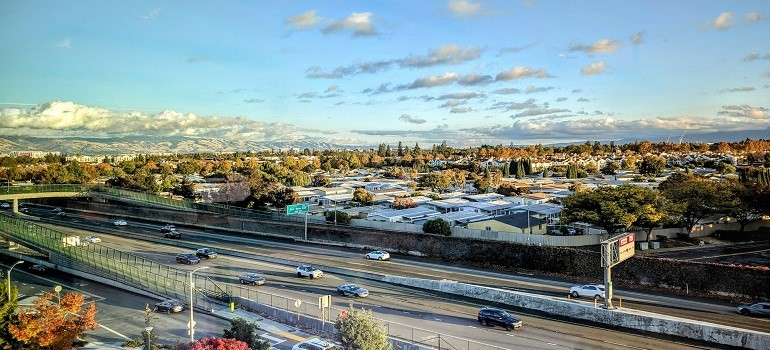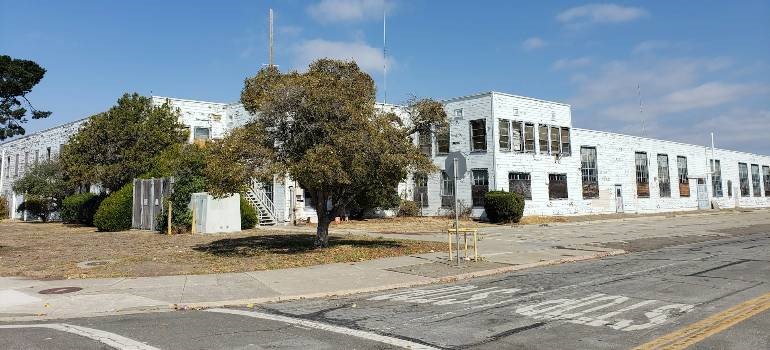Sunnyvale is a prime location in Silicon Valley, offering growth opportunities for businesses. However, if you decide to move your office to Sunnyvale, the process involves detailed planning and understanding of the local market. The city’s real estate market is competitive, and costs can be higher compared to other areas. In addition, navigating zoning laws, permits, and establishing your infrastructure requires preparation. This guide will break down the key considerations to help make your move to Sunnyvale as smooth as possible. If you're looking for assistance with your office relocation, consider contacting trusted Bay Area movers for reliable support.
Understanding the commercial real estate market in Sunnyvale
Sunnyvale’s commercial real estate market is one of the most competitive in the Bay Area, driven largely by the concentration of tech companies in Silicon Valley. The area’s proximity to major tech giants such as Google, Apple, and LinkedIn leads to consistent demand for office spaces, which, in turn, drives up rental prices. For a hassle-free office relocation, you'll need reliable Sunnyvale movers to ensure everything goes smoothly.

The average rent for office space in Sunnyvale is approximately $5.50 per square foot, significantly higher than the regional average.When researching office spaces in Sunnyvale, it’s important to consider the following factors:
- proximity to major highways like U.S. 101 and Interstate 280
- square footage - Sunnyvale has a variety of office spaces, from smaller units of around 1,000 square feet to large campuses spanning 10,000 square feet or more
- layout of your office - ensure the space supports your business operations and provides room for potential expansion and make sure to communicate your vision to the office movers in Bay Area who will be helping you settle in
Negotiating options for growth and tenant improvements
Commercial leases in the area often have longer commitments, sometimes up to 5-10 years. Negotiating for an option to renew or expand can provide peace of mind if your business experiences growth. Additionally, you may want to request tenant improvement allowances, where the landlord helps with the cost of customizing the office space to suit your needs.
While rental prices may seem high, investing in the right space can pay off in the long run by positioning your business for success in a thriving tech hub like Sunnyvale.
Employee relocation and retention in Sunnyvale
Employee relocation to Sunnyvale can be a challenge due to the high cost of living. If you plan to relocate employees to the area, consider offering relocation assistance. This can include:
- housing support
- temporary living arrangements
- cost-of-living adjustments
When considering your options, a reliable Bay Area storage solution might be necessary for managing extra items during employee relocation. Since Sunnyvale’s real estate market can be expensive, it may be necessary to help employees find affordable housing options.

If your business is moving from another part of the Bay Area, employees may face a longer commute. In such cases, offering flexible working hours or remote work options can help employees manage the transition. Sunnyvale also offers various amenities and a strong job market, so it’s important to keep employees engaged with local opportunities. Offering perks that align with the tech-driven nature of Sunnyvale will help with retention.
Overcoming zoning and permitting challenges in Sunnyvale
Sunnyvale has strict zoning laws that can affect where and how you run your business. The city’s zoning laws are divided into multiple districts, each with distinct rules and regulations governing land use and business operations. These districts include:
- Residential
- Commercial
- Industrial
- Mixed-Use
How to choose the right district zone when you move your office to Sunnyvale?
For example, Sunnyvale has several commercial zoning districts such as C-1 (Neighborhood Commercial) and C-2 (General Commercial), each of which applies to different business types.
- In a C-1 zone, the primary focus is on retail businesses that serve the local neighborhood, like restaurants or small retail shops. If you’re opening an office in such a district, you may be restricted in terms of how you display signage. C-1 zones typically restrict signage to keep the aesthetic appeal of the neighborhood, limiting the size and lighting of signs. You may also face restrictions on operating hours, especially for businesses that operate late into the night.
- In contrast, the C-2 zone offers more flexibility and is typically used for businesses like offices, banks, or car dealerships. However, even in C-2 zones, signage restrictions still apply, although they tend to be more lenient than in C-1 zones. A major concern here is the requirement to adhere to the Sunnyvale Sign Ordinance, which limits signage size and height based on the specific location and type of business. If your business operates in a C-2 zone, it’s vital to ensure that your signage complies with city codes, or you may face fines or have to remove non-compliant signage.
- If your business is planning to be in a Mixed-Use zone, the regulations become even more specific. Mixed-Use zones in Sunnyvale allow a combination of commercial and residential spaces, which can lead to stricter controls over signage and noise. The city often limits the hours of operation in these areas, particularly if your office is near residential buildings. The intent is to maintain a balance that doesn’t disturb the residents’ quality of life. Therefore, businesses in Mixed-Use zones should be prepared for limits on signage placement, sound levels, and even traffic flow in some cases.
What are building codes and how are they relevant when you want to move your office to Sunnyvale
Building codes regulate everything from fire safety to accessibility and environmental concerns. For example, if your office requires renovations to meet safety or accessibility standards, you’ll need to apply for building permits. This may include upgrades to ensure compliance with the Americans with Disabilities Act (ADA), such as installing ramps or widening doorways. Sunnyvale’s Building and Safety Division oversees these matters, and they will provide you with guidelines on what changes are necessary. As part of the process, you’ll need to submit detailed plans for approval and schedule inspections before moving forward.
Permitting can be a time-consuming process, so it’s essential to factor in this time when planning your office relocation. For instance, if you plan to make significant changes to the office space, like adding extra rooms, changing the structure, or modifying plumbing or electrical systems, you’ll need to file for Building Permit Applications. These permits can take anywhere from a few weeks to a few months to be processed, depending on the complexity of the project. Certain types of work, such as major electrical or plumbing updates, may require additional inspections and longer approval timelines.
Planning logistics and transportation for your Sunnyvale office move
The logistics of your office move will depend heavily on Sunnyvale’s layout and traffic conditions. Sunnyvale is well-connected to major freeways, making transportation easier. However, traffic congestion is common, especially during peak hours. To avoid delays, plan your move during off-peak times. Additionally, ensure your new office space has adequate parking for employees and clients.

Not all buildings in Sunnyvale have dedicated loading zones, so coordinate with property management for a smooth move-in. You may also want to consider working with a local logistics company that specializes in office moves. They can help with planning and ensure your equipment arrives safely. Sunnyvale’s tech infrastructure is robust, so most businesses won’t face issues with internet or phone service installations. However, ensure that all utilities are set up before the big move.
How to handle your IT infrastructure in Sunnyvale’s tech-heavy environment
Sunnyvale is at the heart of Silicon Valley, and its tech infrastructure is among the best in the world. It’s important to take full advantage of the high-speed internet and telecommunications available.
- Research service providers in the area to ensure that you’re getting the best deal for your business.
- Make sure your office space is equipped to handle the technology requirements of your business, from internet bandwidth to network security.
- If you rely on specific software or hardware, ensure your IT infrastructure is set up to support those needs.
- You might also consider working with an IT professional to help set up your systems, especially if your business is tech-heavy.
With the city’s access to cutting-edge technology, Sunnyvale offers a great environment to grow your digital operations.
Adjusting your company’s operational structure for Sunnyvale’s market
As you plan your office move to Sunnyvale, consider whether your current operational structure is scalable. With the growing demand for office space in Sunnyvale, it’s crucial to think about the future. Can your new office space accommodate your business’s projected growth? How will you manage the increase in operational costs? You’ll need to carefully assess how your business will adjust to the local environment.

Sunnyvale is home to some of the world’s largest tech companies, so networking and partnerships are essential. Make sure your business is positioned to collaborate with other companies in the area. Join local business associations and attend industry events to establish a presence in the community. Creating relationships with local vendors can also help streamline operations and reduce costs in the long term.
Overcoming the challenges of moving your office to Sunnyvale
Moving your office to Sunnyvale presents challenges, but with proper planning, your business can thrive. From navigating the real estate market to managing the high cost of living, every detail requires careful attention. Be sure to research zoning laws, secure the proper permits, and plan logistics carefully to avoid delays. Sunnyvale’s tech-driven infrastructure will help you maximize efficiency, and providing employee relocation assistance will ensure a smooth transition for your team. By tackling these logistical and financial challenges head-on, you can successfully move your office to Sunnyvale and set your business up for success in one of the world’s most innovative regions.
Tags
Subscribe to Upline Moving's Blog










